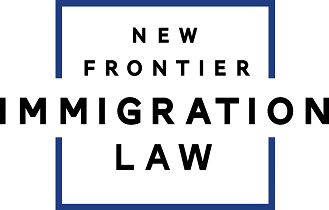If your immediate relative is seeking permanent residency in the U.S., you can fill out Form I-130, Petition for Alien Relative. This can prove your relationship with them and start the process of getting them a family-based Green Card (as opposed to a Green Card to get a job).
The United States Citizenship and Immigration Services (USCIS) may require this form to expedite the permanent residency application process and more easily secure a Green Card for your spouse, child, parent, or other qualifying relative.
In addition, if you are seeking permanent residency in the U.S. and have a qualifying relative who is a U.S. citizen or U.S. permanent resident, you may ask them to file this form for you.
Who Can Fill Out Form I-130?
Anyone who is a U.S. citizen (whether native or naturalized) or a permanent resident (or Green Card holder) in the U.S. can fill out Form I-130 to prove their familial relationship with a relative wanting to apply for a Green Card. However, residency status determines who someone can file a petition for with this form.
U.S. citizens can file this petition for:
- Spouses
- Biological or adoptive parents
- Parents and stepparents (if you are at least 21 years old)
- Biological or adopted children, whether unmarried or married
- Siblings (if you are at least 21 years old)
Permanent residents of the U.S. can file this petition for:
- Spouses
- Unmarried biological or adoptive children
You must fill out a Form I-130 for each relative you petition for. If you are petitioning for your spouse, they must complete Form I-130A.
For a free case review with an Immigration lawyer, call
Who Is Not Eligible to Fill Out Form I-130?
Whether you are a citizen or permanent resident, some situations could prevent you from filing an I-130 petition for a relative. This is true even if they fall into the previously mentioned familial categories.
Here are the situations in which you and your relative may not qualify for this petition process:
Adopted Children or Adoptive Parents
Typically, you do not qualify for this petition if the adoption took place after the child turned 16 years old or if the child was not legally in the adoptive parent’s custody and did not live with the adopted parents for two years prior to filing the petition.
Stepparents or Stepchildren
You cannot file a petition for stepparents or stepchildren when the marriage occurred after the child(ren) turned 18 years old.
Certain Spouses
You may need to provide additional information to prove that the following situations did not occur when filing your I-130 petition:
- A spouse who gained permanent residency through a different marriage to a citizen or permanent resident cannot file this petition for a new spouse seeking permanent residency.
- Spouses who were not both physically present for the ceremony and haven’t consummated the marriage cannot file this petition for a spouse seeking permanent residency.
- Spouses who marry while one is in the process of being deported or facing other changes to legal resident status (there are options to counter this refusal, however).
- Any person who has been found guilty of attempting to marry or marrying fraudulently to bypass immigration laws.
Other familial relationships that are ineligible for I-130 petition include:
- Grandparents and grandchildren
- Nieces and nephews
- Uncles and aunts
- Cousins
- In-laws
You can find all the eligibility stipulations and other instructions for the Form I-130 and I-130A here.
What Information Do You Need to File Form I-130?
In addition to your completed Form I-130, you may also need to provide other documentation, including:
- A completed Form I-130A for your spouse
- Proof of citizenship, permanent residence, or other legal status
- Proof of legal name changes
- Recent, passport-style photos of you and the person you’re petitioning for
You would also need proof of familial relationship, such as:
- An official marriage certificate for a spouse
- Your child’s birth certificate
- Your birth certificate when petitioning for a biological parent
- Your birth certificate and that of your sibling when petitioning for a sibling
- Official adoption papers when petitioning for an adopted child or adoptive parent
The USCIS may also ask for additional documentation during the processing period, such as biometric testing. Get certified English translations for all documents written in a foreign language and send those with the untranslated versions in your petition packet. Do not send original copies unless the USCIS specifically asks you to do so.
Our immigration lawyers
How Much Does It Cost to File Form I-130?
It currently costs $535 to file Form I-130. You may need to pay that fee for each Form I-130 you file for individual relatives.
You can pay this fee using a credit card or debit card when you file the form online. If you file by mail, you can pay with a cashier’s check, a personal check, a money order, or a credit card (as long as you also submit Form G-1450, Authorization for Credit Card Transactions).
Complete a
Free Case Evaluation
Form now
Where Can I File Form I-130?
You can file Form I-130, all applicable completed I-130A forms, and all supporting documentation online or by mail.
If your relative is filing Form I-485, Application to Register Permanent Residence or Adjust Status, at the same time, file I-130 petitions online through the USCIS Applicant Portal. After submitting I-130, applicable I-130A forms, and supporting documents online, you will get a receipt that the Green Card applicant can include with their mailed Form I-485.
You can file an I-130 petition through the mail by sending the completed form and supporting documents in a sealed envelope to either the Chicago, Dallas, or Phoenix USCIS Lockbox locations. The location you should send it to depends on where you live and where the Green Card applicant is sending their completed I-1485 packet.
How Long Does It Take for USCIS to Process an I-130 Petition?
Processing time can depend on how the closeness of your familial relationship ranks in the USCIS’s eligibility categories.
- Immediate relatives include spouses and unmarried children under 21 years of age for citizens and permanent residents and parents of U.S. citizens. The USCIS typically prioritizes petitions for immediate relatives, and these applications can take between five to 12 months after filing.
- Family preference relatives include children over 21 years old, family members of permanent residents, married children, and siblings. Petitions for people who fall into family preference categories can take between six months to 14 or more years.
Get Help With Your Immigration Application From Our Team
Do you or a loved one want guidance on the I-130 Petition process or other elements of your immigration application? New Frontier Immigration Law could help. Contact us for a strategic session to go over your application and mistakes to avoid today.






